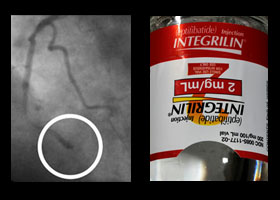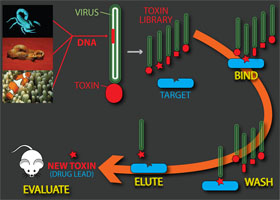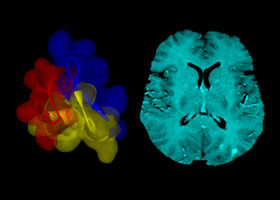The Success and Potential of Animal Toxins

|
|
Animal toxins are the source of an extraordinary array of medications: 20 drugs to treat, for example, heart attacks (INTEGRILIN®, AGGRASTAT®), high blood pressure (CAPTOPRIL®), diabetes (BYETTA®), and cancer and HIV pain (PRIALT®) with sales over a billion dollars a year. Other toxins are in trials to cure brain tumor, heart failure, and autoimmune disorders. The secret for this success is that animal toxins evolved for 400 million years to kill prey and predator. As a result, toxins are among nature's most specific molecules aiming key targets in vital organs from the heart to the brain — ideal templates for drugs. Yet 20 million toxins in nature remains unexplored.
|

Heart attack to be treated with venom-based drug INTEGRILIN®
|
Screen Millions of Toxins

|
|
At the University of Chicago, Zoltan Takacs co-invented the Designer Toxins technology to create toxin libraries. Each library contains thousands to millions of native and engineered animal toxins using computational animal venom genomics and molecular methods. The libraries are screened on a target — a molecule that decides the fate of a disease. Those toxins that are the most selective for the target are isolated, pharmacologically verified, and become drug templates. It's like trying out a million keys at once and picking the one that opens a lock for which no one had a key before. Control over the lock, means having control over the disease.
|

Our toxin library technology for drug-lead identification.
|
Designer Toxins — The Drug Templates

|
One of our novel Designer Toxins is a powerful scorpion toxin derivative that is promising for autoimmune diseases, such as multiple sclerosis, rheumatoid arthritis, and type 1 diabetes. Moreover, the Designer Toxin technology holds potential for an even wider range of illnesses since animal venoms have a large variety of targets. Specifically, toxin libraries can be employed to:
- identify new leads for drug development,
- improve existing drugs or drug leads,
- validate therapeutic targets.
At present we are creating more complex toxin libraries and screening them on targets implicated in various major diseases with unmet therapeutic needs.
|

One of our toxin drug-lead example is selective for s target (Kv1.3 channel) implicated in multiple sclerosis; multiple sclerosis in brain.
|
|

